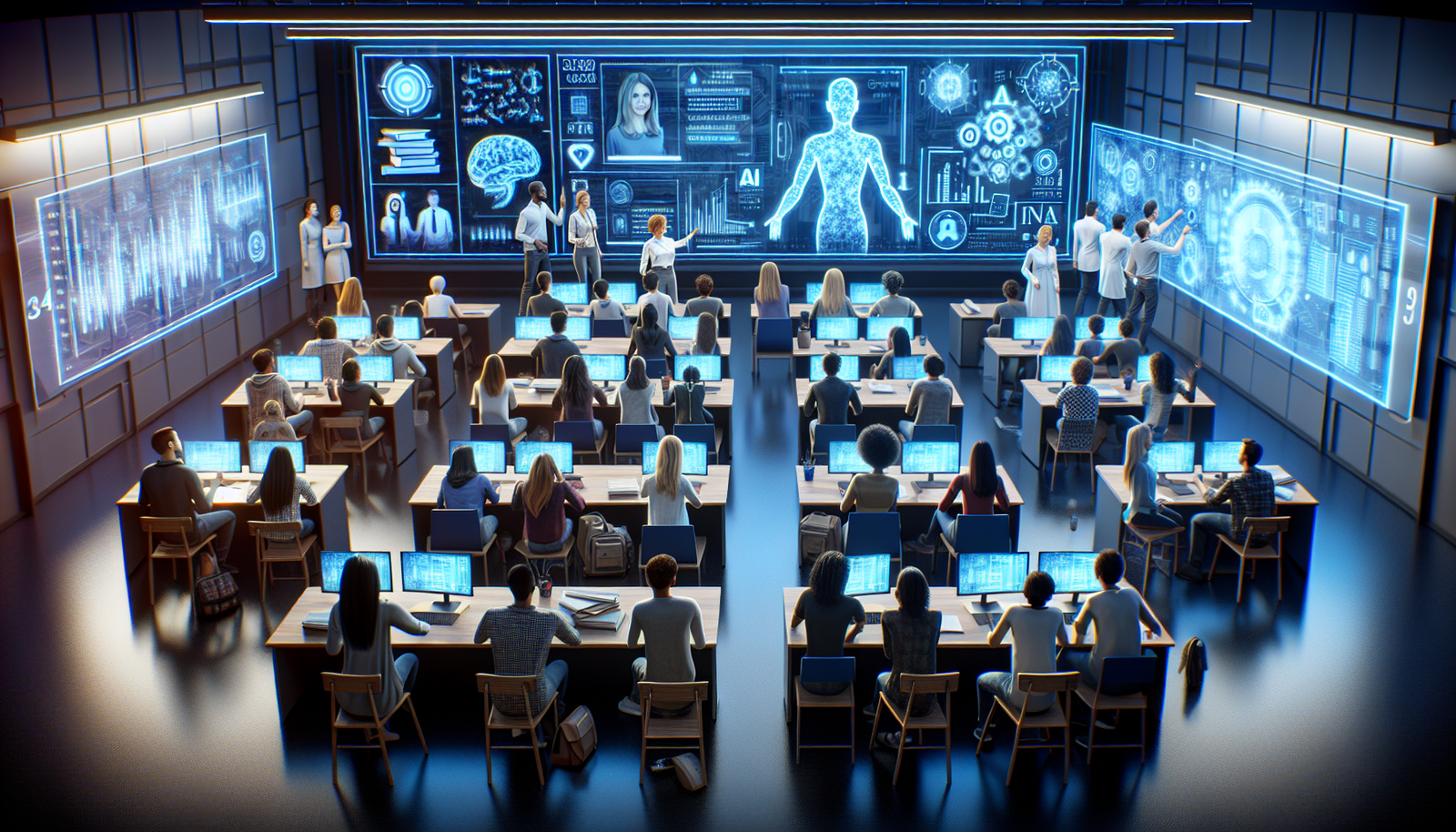Peducational innovation is asserting itself as an unavoidable priority in the face of contemporary challenges. Artificial intelligence, a formidable tool of educational effectiveness, suddenly draws the attention of teachers. In a context where restrictions on students are multiplying, the enthusiasm for AI raises imperative ethical questions. Leveraging this technology offers educators the opportunity to transcend traditional limits. The debates around moral implications are intensifying, questioning the place of humanity in the face of machines. AI, although promising, raises crucial issues to consider for a balanced educational future.
Adoption of AI by teachers
Teachers are integrating artificial intelligence (AI) into their pedagogical practice to optimize their effectiveness. Various tools assist these professionals in assessing students, creating educational materials, and personalizing learning experiences. This radical transformation responds to a growing need to adapt education to rapidly changing environments while taking into account the demands of the job market.
Use of innovative technologies
Technology facilitates the automation of several administrative tasks, allowing teachers to focus on supporting students. AI is emerging as a key tool for analyzing student performance, providing valuable data on their progress and helping to identify gaps in their skills. The use of machine learning models constitutes a major advancement in the educational field.
Restrictions for students
Despite the advantages of AI, restrictions apply to students regarding its usage. Institutions seek to limit access to AI tools to preserve academic integrity. Concerns about cheating and technological dependence justify this approach. Furthermore, an education focused on creativity and critical thinking remains essential, which is why the use of AI should be regulated.
Ethical debates
The ethical implications of integrating AI into education spark discussions. Experts and practitioners are questioning the risks associated with increased reliance on this technology. Data protection, privacy, and algorithmic bias issues fuel these debates. Educators must navigate this complex landscape, where the benefits of AI come with responsibilities.
Concrete cases and perspectives
Many countries are adopting initiatives to integrate AI systems into education. In the United Kingdom, the government has approved an ambitious plan to promote AI within schools. This strategy aims not only to modernize teaching but also to prepare youth for the challenges of the digital future. Positive results observed in some experimental classes fuel the discussion about the effectiveness of these innovations.
Continuous evolution of tools
AI systems are in constant evolution. For example, ChatGPT has shown notable progress since its launch, improving user interaction. As teachers adopt these tools, it becomes imperative to train educational staff on these new technologies.
In the face of these changes, a systemic and balanced approach remains necessary for the effective deployment of AI in the educational sector. Teachers, as agents of change, must navigate these turbulent waters with ethics and discernment. The quest for education adapted to contemporary challenges will require open dialogue among all stakeholders.
Frequently asked questions
How can AI help teachers improve student learning?
Artificial intelligence enables teachers to personalize learning pathways, automate administrative tasks, and analyze student data to better target their educational needs.
What are the main restrictions teachers face when using AI in the classroom?
Teachers must navigate strict school policies on technology use, concerns related to student privacy, and sometimes resistance from faculty regarding the integration of AI into traditional learning frameworks.
What are the ethical issues surrounding teachers’ adoption of AI?
Ethical issues involve data privacy, algorithmic biases that may affect pedagogical judgment, and the risk of increasing access inequalities to technology among students.
Can teachers use AI to assess student performance?
Yes, AI can be used to analyze assessment results, providing teachers with additional insights into students’ strengths and weaknesses while supporting more accurate formative assessment.
What skills should teachers develop to integrate AI into their practice?
Teachers should familiarize themselves with technological tools, understand the basics of data and algorithms, and learn to interpret the results provided by AI systems to apply them effectively in the classroom.
What types of AI-based tools are available for teachers?
Various tools exist, such as intelligent tutoring systems, adaptive learning platforms, and academic performance analysis software that assist teachers in their practice.
How can AI help reduce teachers’ administrative burden?
AI can automate repetitive tasks such as grading, managing assignments, and communicating with parents, allowing teachers to spend more time engaging directly with students.
What are the advantages and disadvantages of AI in education?
Advantages include increased personalization of learning and improved efficiency, while disadvantages may encompass ethical concerns and excessive reliance on technology.
How can teachers ensure ethical use of AI in the classroom?
Teachers should follow ethical data protocols, ensure transparency of the algorithms used, and involve students in discussions about the implications of using AI.






